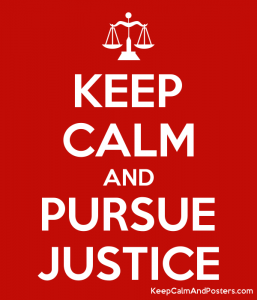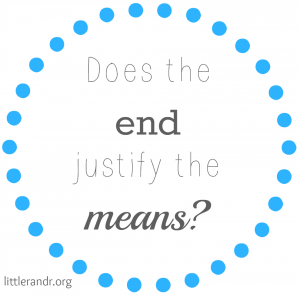Shoiftim 2020 – Looming Showdown at the Rabbinical Courts & Does the End Justify the Means?
by devadmin | August 20, 2020 6:49 pm
We begin this week’s posting with a few mazel tov shoutouts; some current and late breaking; a few slightly overdue.
Mamish right about now, our friends Betty and Sheldon Greenspan – nicer people hard to find- are getting ready to walk their beautiful daughter Lauren down the aisle where she will be marrying Jacob Aryeh, son of Leah Newman Aryeh and Michael Aryeh. A big hearty mazel tov to Lauren and Jacob, to the entire Greenspan family. Mazel tov as well to Jacob’s entire family. May Jacob and Lauren merit to enjoy many happy years together.
 Also happening right now…Isaac Rosen, son of decades long friends Malki and Phil Rosen, is celebrating his le’chaim as he has become engaged to Emily Klein, she the daughter of Debra and Morey Klein. A big mazel tov to Isaac whom we had the pleasure of watching grow up, to the Rosen siblings and to the entire extended Rosen and Leifer families. A special shout out to Sarah Leifer, Isaac’s babby. Mazel tov as well to the entire Klein family. We look forward to dancing at this wedding (in person or over zoom) with Isaac and Emily. May Emily and Isaac enjoy many decades of blissful marriage.
Also happening right now…Isaac Rosen, son of decades long friends Malki and Phil Rosen, is celebrating his le’chaim as he has become engaged to Emily Klein, she the daughter of Debra and Morey Klein. A big mazel tov to Isaac whom we had the pleasure of watching grow up, to the Rosen siblings and to the entire extended Rosen and Leifer families. A special shout out to Sarah Leifer, Isaac’s babby. Mazel tov as well to the entire Klein family. We look forward to dancing at this wedding (in person or over zoom) with Isaac and Emily. May Emily and Isaac enjoy many decades of blissful marriage.
This past Tuesday, our fiends Bonnie and Heshie Schertz had the distinct honor and pleasure of walking their beautiful daughter Elissa down the aisle to the chuppah where she married her choson Adam Kirshner. A very beautiful wedding it was to watch; your virtual wedding gift to come. A big mazel tov to Elissa and Adam, and to their respective families. May Elissa and Adam be zoche -merit- to build a big beautiful bayis ne’man together.
And last week, a young man we have known since birth, Ezra Kwestel, son of Rene and Marc Kwestel married his kallah, Elana Lefkowitz, she the beautiful daughter of Faige And Akiva Lefkowitz. Mazel tov to the honored grandparent who had the z’chus to see Ezra and Elana get married. We wish Ezra and Elana many years of blissful marriage.
This coming Sunday, our friends Autumn and Bruce Mael will be walking their beautiful daughter Sara down to the chuppah where she will marry David Schwartzman of Teaneck New Jersey. We had the pleasure of hosting David during this courtship and can confirm that Sara picked a good guy. Mazel tov to Autumn and Bruce, to Sara and her siblings, Jordana, Jacob and Esther (all single and available) and to David’s siblings, Yael and Ben Wine, Shira and Josh Greenspan, Keren and Yoni Schwartzman (both still single and available). Mazel tov to David’s parents, Dina and Jesse Schwartzman, and to their entire family. We wish Sara and David many happy decades together.
Finally, a belated and big mazel tov to our friends Dona and Ed Stroh upon the wedding of their mazing son Daniel who back on April 2nd, married Miriam Wilson, she the beautiful daughter of Deborah and Ken Wilson. Mazel tov to David’s great brothers Jared and David. May Daniel and Miriam build a bayis ne’man b’yisroel and be a source of much joy, nachas and happiness to their respective families.
——————————————————————————————————————–
Looming Showdown at the Rabbinical Courts & Does the End Justify the Means?
Shoin, back in the 1500’s a gentleman by the name of Niccolò Machiavelli wrote “The Prince,” a book the future Ois was assigned to read and give a report on in his first term of graduate school over at the Zeckendorf campus of LIU (corner of Flatbush Avenue and DeKalb Avenue). And why is that at all relevant to this week’s parsha of Shoiftim? We will answer that question below after addressing a quote attributed to him, perhaps his most famous of all time, one often repeated. What did he say that was so profound? According to most, he coined the phrase “the ends justify the means.” Ober, is that emes? Did he mamish say that? In English? Wasn’t he Italian and didn’t he write in Italian? He did! And did he write anything that translates directly into “the ends justify the means?” Not! But he did -in Italian- allude to a complex version of the concept in his Prince and other works. Exactly what the phrase meant back then, ver veyst, ober today it’s interpreted azoy:A good result is worth a bad way of achieving those results. The bottom line: for reasons we don’t have to chap, he became the father of the phrase. Avada an asterisk must accompany such authorship as –according to others- he was not the real father of the phrase which is instead efsher attributed to another gentleman by the name of Ovid (a Latin writer) who lived from 43BC to 17A.D. and who in the book titled Heroides, wrote a line in a poem which when translated reads azoy: “the result justifies the deed or the ends justify the means.” So who is the real father? Ver veyst? Seemingly we need Maury Povich and one of his DNA experts to solve this case. And if Machiavelli did not father the phrase, certainly he’s not the first person to whom a phase not uttered was attributed. Did Sarah Palin really say that she could see Russia from her house? Did Marie Antoinette really say ‘Let them eat cake?’ Ver veyst? Did the Vaad really tell people not eat in two glatt kosher eating establishments? Don’t answer that last one! All that being said, this week we shall explore the heylige Toirah’s view of using means to justify the ends.
 Ober ershtens, one more introductory paragraph as we build the suspense and reveal the relevance of the phrase to the looming showdown in the rabbinical courts between two glatt kosher eateries and the Vaad which has –in writing – cast clouds over their kashrus reliability.
Ober ershtens, one more introductory paragraph as we build the suspense and reveal the relevance of the phrase to the looming showdown in the rabbinical courts between two glatt kosher eateries and the Vaad which has –in writing – cast clouds over their kashrus reliability.
Over these past ten years –yes, we are now in year eleven of Oisvorfer posts- we have often touched upon the subject of repeated words and mitzvis in the heylige Toirah. Our sages have taught us that there are no extra words or even letters in the heylige Toirah, and that if we come across a word, or concept that seems to be repetitive and efsher superfluous, it isn’t! The bottom line: it’s there for a reason. What is the reason? Many, beginning with Rashi and other early sages, look into these repetitive words and provide us with their own thoughts on what extra letters, words, or repeated concepts are there to teach and how are they to be interpreted. Their answers are quite creative and mostly satisfying.
We shall be exploring this concept once again as this week a double wording in the 3rd posik of the parsha had many an exegete deep in thought trying to figure out just what that RBSO had in mind when He chose not just to repeat a concept, but in this case, a doubling up of the same word. Interestingly, the thought and command –one of 42 mitzvis in the parsha, revolves around justice and how it’s to be executed, carried out. Ober, of even more interest, is how these words are directly related to the not so kosher war still raging between the Vaad and the new Mehadrin group who certify as glatt kosher, Chimichurri, Five Fifty, and the Kineret market located on Peninsula near Mill road here in the 5 Towns.
Lets’ begin here: the Oisvorfer is confirming swirling rumors. The owner of Five Fifty has summoned –meaning sent hazmono’s- to seven different rabbis of the 53 whose signatures were affixed to the letter issued by the Vaad wherein they told their constituents to refrain from eating in the establishments under the supervision of the new Mehadrin agency, to a Din Torah, a rabbinical court in Brooklyn, New York. The Ois also confirms that seven rabbis were separately summoned by Chimichurri to a different Din Torah, this one to be held in Lakewood New Jersey. As an aside, while some of the rabbis overlap- meaning they were called to both, mostly they are different. Finally, the Ois confirms that the return date –meaning date of appearance- for at least one of the hazmono’s is this coming Tuesday. What will take place during these proceedings, ver veyst? Will the Rabbinic Court rule in favor of the Vaad, or for the plaintiffs, the two glatt kosher establishments whose business the Vaad letters have affected? Ver Veyst? The Oisvorfer will of course abide by any ruling.
Nu, mistama you have a bunch of questions and let’s get to some of them? Why are only seven rabbis being called to Beis Din if 53 signed the Vaad letter? Why these specific rabbis? Will the Vaad rabbis being summoned make an appearance? What happens if they don’t? Why did Five Fifty and Chimichurri summon the Vaad to a Din Torah? Why didn’t the Vaad, if they had an issue with the new supervisory agency, not call them to a rabbinical court? Grada, we asked that very question a few weeks ago. Also, how does the hazmona work? Must the Vaad rabbis appear? What happens if they don’t? Mistama there are other questions, ober let’s start here.
The owners could have called all 53 signatories to the Beis Din but chose only fourteen were called for now. One rabbi was dropped. The Ois confirms they were chosen because they held zoom meetings calling on the community not to patronize them. Other rabbis were called based on statements made publicly. Of course, the Ois is not privy to Vaad thinking and does not know if they will appear or not. The Vaad does have a few moves to make including trying for a change in venue, meaning a willingness to appear at another rabbinical court. The bottom line: this is the proper venue when two Yiddin have a disagreement and should mistama have been explored by the Vaad before going public with letters suggesting these two establishments were not reliable simply because they both chose to leave the Vaad and join a new agency. The Vaad is overseen by a number of very distinguished rabbis and it will avada be interesting to see what shakes out.
Efsher you’re wondering why the Ois takes this issue so personally and that’s exactly what the eishes chayil asked? The answer: having been involved in the restaurant business for kimat 25 years, the Ois knows very well the harm that the Vaad inflicted on good hard working, religious people who have invested hundreds of thousands of dollars into their respective businesses. Where they accused of ordering and serving non-kosher meat or chicken? Not! Where they accused of other nefarious activities? Also not! The undisputed fact is this: they left the Vaad for whatever reasons they had; let’s call them irreconcilable differences. They simply divorced the Vaad. They were kosher and still are. The owners are both well-known good guys. Both establishments get their provisions from the very same vendors as before, and as Rabbi Flaum stated with a degree of disgust, anger and certitude: nothing changed when they switched to the new agency. These two establishments have the same mashgichim (on the ground supervisors) as they had under the Vaad. Logic dictates that if the mashgichim were reliable pre-divorce, they remain so post breakup. This sudden attack on their reliability makes no sense, and therefore the Ois remains riveted by this still developing saga. Moreover, the Ois also confirms that he has -in addition to the calls fielded from current Vaad rabbis not happy with his recent posts- also heard from other rabbonim -some former Vaad members in these 5 Towns- who are all too familiar with the Vaad’s tactics; they are disgusted with the Vaad’s ongoing actions to further destroy the reputations of the establishments.
 As mentioned above, our parsha talks directly to this issue as it declares (Devorim 16:20): Tzedek, tzedek tirdof / צֶ֥דֶק צֶ֖דֶק תִּרְדֹּ֑ף. Justice, justice thou shalt pursue. It so happens -mistama by design of the RBSO- that no matter the topic being discussed, one can always find some guidance in the heylige Toirah. At times we need to get creative but others times, it’s mamish staring us in the face. This week, it’s staring us directly in the face; it does not get easier as the heylige Toirah is mamish talking about the case at bar. The instructions teach azoy: “ You shall not pervert justice; you shall not show favoritism, and you shall not take a bribe, for bribery blinds the eyes of the wise and perverts just words.” Back in Shmois (24:6 and 7) we learned these commandments: You shall not pervert the judgment of your poor man in his lawsuit. Distance yourself from a false matter; and do not kill a truly innocent person or one who has been declared innocent, for I will not vindicate a guilty person. The bottom line: These are all central declarations of the heylige Toirah, echoed in many other instructions.
As mentioned above, our parsha talks directly to this issue as it declares (Devorim 16:20): Tzedek, tzedek tirdof / צֶ֥דֶק צֶ֖דֶק תִּרְדֹּ֑ף. Justice, justice thou shalt pursue. It so happens -mistama by design of the RBSO- that no matter the topic being discussed, one can always find some guidance in the heylige Toirah. At times we need to get creative but others times, it’s mamish staring us in the face. This week, it’s staring us directly in the face; it does not get easier as the heylige Toirah is mamish talking about the case at bar. The instructions teach azoy: “ You shall not pervert justice; you shall not show favoritism, and you shall not take a bribe, for bribery blinds the eyes of the wise and perverts just words.” Back in Shmois (24:6 and 7) we learned these commandments: You shall not pervert the judgment of your poor man in his lawsuit. Distance yourself from a false matter; and do not kill a truly innocent person or one who has been declared innocent, for I will not vindicate a guilty person. The bottom line: These are all central declarations of the heylige Toirah, echoed in many other instructions.
Another bottom line: the pursuit of justice has, from the beginning of time, been a fundamental tenet of Judaism. It’s a fundamental principle of the heylige Toirah, ober what taka is pshat in the words Tzedek, tzedektirdof? What do the words mean and what is involved in treating people justly and fairly? Any why taka is “tzedek” repeated in the phrase, “Tzedek, tzedek tirdof?” Would it not have been sufficient for the Toirah to declare, “Tzedek, tirdof” — “Justice you shall pursue”?
Shoin, let’s see what a few had to say: Said Reish Lokish, azoy: the repetition of tzedek is to remind us to be deliberate and careful in judgment, revisiting and reviewing the case and not rushing into a decision. Timely thoughts? As an aside, in Jewish law, a beis din waits until the next day before delivering a guilty verdict. And said the RambaM, that the repetition emphasizes the need to consult with others, garnering as many points of view as possible before reaching a decision. Says Rashi. the idea of pursuing justice demands that we make every effort to seek out the most competent court to hear the case when a dispute involves another Jew. This applies even if it is a simple– open and shut–case that any court could easily adjudicate. And says the Sifsei Chachomim azoy: the claimant must go to the most learned and impartial court.
Others have argued that the term is repeated to convey the idea that the pursuit of justice is not only the responsibility of the officials and the courts, but also of each individual. As was taught in the name of Rabbi Chiya, a fourth-century scholar, “If a person is neither a scholar, nor a teacher, nor known for observing all the ritual commandments, but stands up to protest against evil, such a person is considered a blessing.” Powerful words! But we’re not done: other opinions in the heylige Gemora teach us azoy: the repetition of “tzedek” refers to the need for just compromise! It is understood that often two justified claims clash with each other; thus tzedek, tzedek. How does that work? The rabbis explain that the repetition of tzedek teaches us that when two justified claims clash with each other, the just solution is for the parties to find a compromise between them. Work it out but not through bullying tactics.
Says Rabaynu Bichaya azoy: “One must be particularly careful to infuse both his actions and words with justice; for it is precisely these matters wherein it is possible for a person to harm himself and others.” Said Rav A. Henach Leibowitz, azoy: it is all a question of standards. The Toirah requires us to maintain a maximum standard of integrity and honesty. We must always introspect, asking ourselves these questions: are we really sure that it is the way we claim? Are our motives above reproach, or is there a subtle hint of inappropriateness involved here? Food for thought?
Perhaps the most popular pshat, one repeated to the Ois earlier this week by Rabbi Benjamin Blech (recovering from a medical procedure; may he be blessed with good health and good years ahead) who reminded me of a pshat from Reb Yaakov Yitzchok of P’shischa who interpreted the word’s repetition to connote that the end does not justify the means. Machiavelli was wrong! “The pursuit of justice must also be done justly, unblemished by invalid means, with lies and surreptitiousness as some permit themselves under the flag of the worthy cause.” You hear that raboyseyee? The message of the repeated “tzedek tzedek seem to tell us that justice must be pursued with just means. And Rav Simchah Bunim, also from Peshischa was wont to say, “Even the tzedek, justice, must be pursued with tzedek, righteousness.” The end does not justify the means. A holy goal must be achieved by equally holy means. Even when one is searching for the truth, one should take care to do so using legitimate means, and not emulate the example of the gentiles, who go by the principle that ‘the end justifies the means’. Which of the two aforementioned rabbis actually said that, ver veyst? Seemingly both.
Said Rav Elya Meir Bloch: “the pursuit OF righteousness must also be pursued WITH righteousness”. We are not merely being taught to run AFTER justice. We are told to run AFTER justice WITH justice. The pursuit of justice should never be carried on with unjust ways. We may not overlook unscrupulous methods to achieve lofty goals. Righteousness must be pursued with righteousness. Achieving Tzedek in any other way is not Tzedek.
 The bottom line: the Vaad believes its ends -having one unified Vaad –is correct and just. They -some of them but zicher not all -also seemingly believe that their means, letters disparaging the new Mehadrin and by extension harming the establishments under their hashgocho, and by further extension, harming the individual owners, are kosher and correct. As an aside, other actions -dirty tactics not yet made public- have also been taken by a few. The owners of Five Fifty and Chimichurri believe that at a minimum, the Vaad’s means fall outside halocho and outside the various interpretations given for the double wording of Tzedek Tzedek. They will argue their cases at a din Torah if the Vaad shows up.
The bottom line: the Vaad believes its ends -having one unified Vaad –is correct and just. They -some of them but zicher not all -also seemingly believe that their means, letters disparaging the new Mehadrin and by extension harming the establishments under their hashgocho, and by further extension, harming the individual owners, are kosher and correct. As an aside, other actions -dirty tactics not yet made public- have also been taken by a few. The owners of Five Fifty and Chimichurri believe that at a minimum, the Vaad’s means fall outside halocho and outside the various interpretations given for the double wording of Tzedek Tzedek. They will argue their cases at a din Torah if the Vaad shows up.
The final bottom line: justice should efsher not be interpreted to read Just-us!
A gitten Choidesh Elul and Shabbis.
The Heylige Oisvorfer Ruv
Yitz Grossman
Source URL: https://oisvorfer.com/shoiftim-2020-looming-showdown-at-the-rabbinical-courts-does-the-end-justify-the-means/
